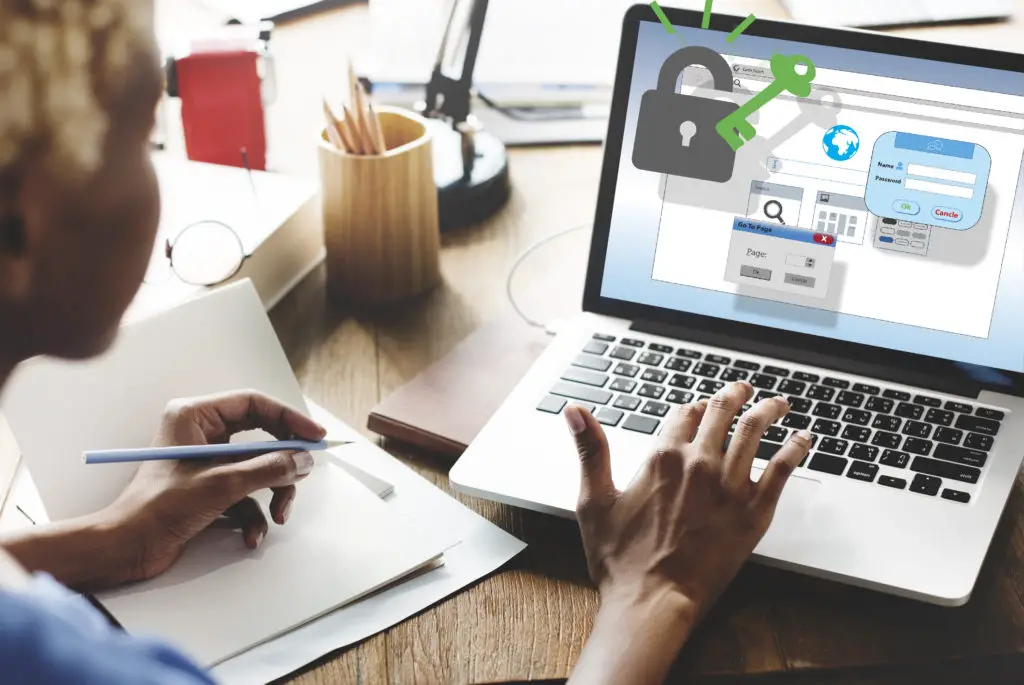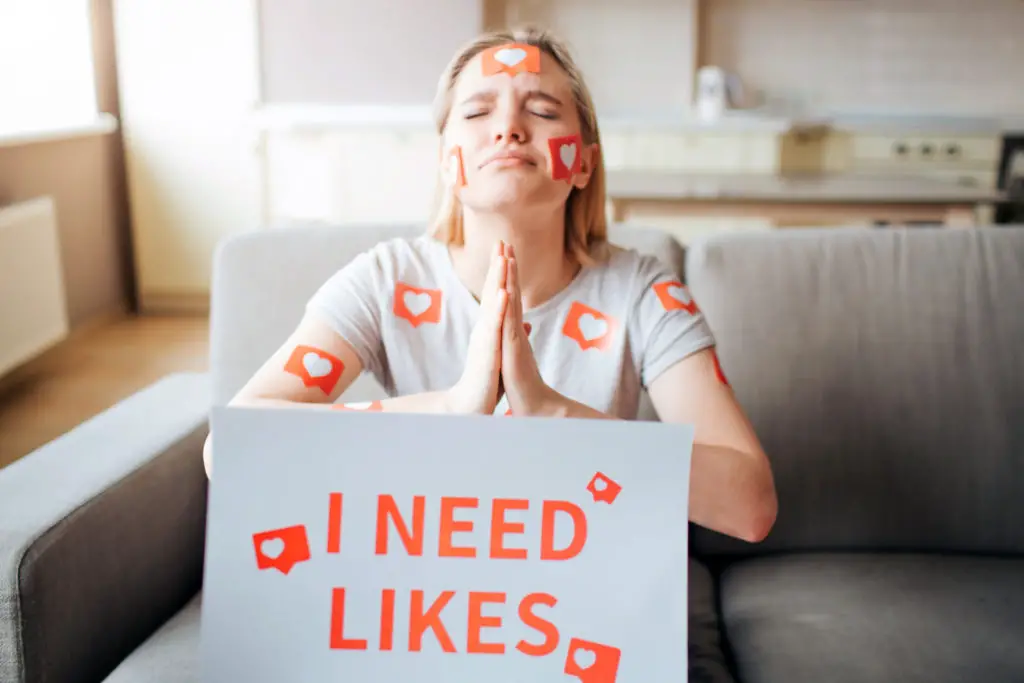Lower your stress. Recoup time in your day. Restore your ability to focus. I felt all these after my social media detox. I closed all my social network accounts in one weekend. I pledged to rejoin a service as needed and only after searching for the safest and most secure alternatives. What are the safest social networks?
Signal
Keybase
Telegram
Mastodon
Snapchat
Steemit
Minds
Element
Whatsapp
Pinterest
LinkedIn
These services offer a higher level of personal privacy, data security, operational transparency, and censorship protection compared to their more well-known competitors.

Ranking and Reasoning
Social networks take several forms. Some center around a particular topic with a rich suite of tools. Other social media apps are not too different from simple messaging applications.
For this ranking, let's use a wide definition. Let's define a social network to be an internet-connected service where one or more people connect, communicate, and track interactions.
I have used/currently use each of the following services. Each entry explains one or more reasons why you can consider it a safe and/or secure social network.
Signal
![]()
Which is the safest messaging app? Signal messenger is the safest app for most consumers. It's the most secure chat app to date.
Signal is a rich media, replacement for outdated and insecure SMS/MMS. It's also a complete, drop-in substitution for Microsoft's Skype, Apple's Facetime, or Facebook's Messenger. All communication is end-to-end encrypted using industry standards. Users can opt to set part of the conversation to expire and securely self-destruct.
The development team takes measured steps to release only features that respect and support personal privacy and content security. Signal is open-source so anyone can audit the code adding trust in the use of the service.
Terms of Service | Privacy Policy
Keybase
![]()
Keybase's mission is to make encryption easy and user-friendly. The service offers a suite of productivity tools including social communication which replace Slack and Discord. The Keybase app is available on multiple devices and offers collaborative code storage and file sharing among its many features.
Every function is end-to-end encrypted and Keybase has zero knowledge or access to user content.
Terms of Service | Privacy Policy
Telegram
![]()
Telegram supports user privacy with end-to-end encrypted messages. The academic controversy around the use of a proprietary encryption algorithm reduces its ranking. However, the app is available for download outside the Google and Apple app stores demonstrating Telegram's standard of openness and focus on the interests of its users.
The 2019 Hong Kong protestors highly trusted Telegram to coordinate their efforts. The effectiveness of the platform spurred a Chinese cyberattack aimed to disrupt the messaging service to defeat activists.
Consider Telegram as a secure replacement for standard SMS and MMS messaging and a video calling alternative to Facetime or Skype.
Terms of Service | Privacy Policy
Mastodon
![]()
The decentralized social network, Mastodon, seeks to support users with Twitter-like functionality.
The open-source software enables any organization to operate a social network. Each Mastodon instance is a self-contained, social media ecosystem with the ability to cross-reference and link to other Mastodon communities. This decentralization gives this network of social networks a guard against censorship.
Terms of Service | Privacy Policy
(Note: each instance has its own)
Snapchat
![]()
Self-described "camera company", Snapchat, built its social network with the premise of sharing media once. Photos, videos, and text messages shared on the platform disappear from the internet after a short time.
The co-founders started Snapchat to relieve the stress caused by other social networks where personal content is forever preserved. The company rejected a $3 billion offer from Facebook standing firm to the social network's founding principles.
The social media app also fully encrypts photo and video media messages. This makes it a great alternative to sending logged and outdated MMS via standard Android Messenger or Apple iMessage.
Terms of Service | Privacy Policy
Here's a little-known way to send disappearing SMS text messages. ... though your best bet is to stop using 1990s tech.
Steemit
![]()
Steemit is a social network focused on writers and bloggers and incentivizing their work.
As a comparison, writers publishing on competitor platform Medium grant the company a license to sell advertising alongside and remove published content at any point. Another blogging competitor Tumblr goes further. Writers grant Tumblr the ability to sub-license and provide royalty-free use of the writer's work.
Steemit uses blockchain technology to encourage readers to vote on valuable articles which increases the amount of cryptocurrency paid to the writer after a week. On the seventh day after publishing, a post is committed to the blockchain and can no longer be edited or deleted. This protects work from censorship and preserves the authors writing.
Terms of Service | Privacy Policy
Minds
![]()
Minds is a social network challenging the look and function of Twitter with the long-form, social-media sharing of Facebook. Members of the platform have the freedom to read and write posts. Users can upvote and send cryptocurrency tips to authors of great content.
The service is open-source allowing auditing of the algorithms driving content handling. This combats abuse like the Facebook–Cambridge Analytica data scandal.
The company does not censor content. Instead, Minds empowers the community to flag unsuitable content by providing a Report function supported by a content moderation policy
Over the last year, I've followed the gain in popularity of Minds. I just registered a new account for this review and I'm impressed. Minds only requires more new users to drive the network effect and push towards dethroning Facebook and Twitter.
Terms of Service | Privacy Policy
Element

Element (formerly Riot) is the primary instance of the decentralized chat service Matrix. The goal of the open-source platform is to be a privacy-centric alternative to Slack and Discord.
Each Element Matrix Server allows for full end-to-end encryption for direct messages and within topic-based chat rooms. Content moderation is handled by the server owner or at the room administrator level.
PrivacyTools lists Matrix as their top pick for federated real-time communication and team chat platforms replacing systems like Slack or Microsoft Teams. The government of France implemented a fleet of Matrix servers called Tchap placing a heavy vote of confidence in the decentralized social network.
Terms of Service | Privacy Policy
![]()
WhatsApp is the world's most popular social media app messaging app. With over 1.6 billion users, it beats out its closest competitor Facebook Messenger according to Statista.
Although Facebook purchased WhatsApp in 2014, progress was underway to add end-to-end encryption. Open Whisper Systems partnered with WhatsApp to provide the same encryption already in use by the Signal app. Full encryption across all WhatsApp applications was completed in 2016.
Isn't SMS more secure than WhatsApp? SMS is not more secure than WhatsApp. Messages sent through the outdated SMS/MMS system are not encrypted. The sender's and receiver's mobile carriers log each text which can be obtained by law enforcement or through insufficient security.
It's unfortunate that Facebook now collects metadata from the WhatsApp platform for advertising. WhatsApp is a safer bet than Facebook's own Messenger,
⚠️Warning:
With new changes to the terms of service and privacy policy, users should consider this choice carefully
Terms of Service | Privacy Policy
(European residents use this main legal statement)
![]()
Pinterest focuses on sharing inspirational photos and infographics. The company's terms of service and privacy policy are understandable and transparent. Each section of the terms of service includes a "More simply put" translation clarifying each point. The company is open about how much data they collect and what they do with it.
An open-source, decentralized photo-sharing service supported by PixelFed is better for transparency and censorship protection. However, Pinterest is the next most popular alternative to Facebook-owned and data-mined Instagram. Photographers looking for a large user base will find plenty of exposure (pun intended).
Terms of Service | Privacy Policy
![]()
Microsoft collects oodles of data on users of their many products and services. LinkedIn is no different. However, the social network's focus on professionals provides a level of safety.
Careers notoriously center around the adage "It's not what you know, but who you know". The member statistics for LinkedIn can justify a careful and limited use of the social network, especially for career-focused users.
LinkedIn alternatives like Xing or Meetup do not have large enough user counts or favorable privacy policies.
I chose to reactivate my LinkedIn profile.
Terms of Service | Privacy Policy
Wondering what the worst social networks are for privacy (and mental health)? Check out the list plus how-to guides on adjusting each's settings.
Encrypted Social Media Apps
Encrypted social media apps are called private social media apps because they offer a safe way for users to communicate with each other using encryption algorithms. There is a rise in the social network ranking of encrypted apps like Telegram and WhatsApp because they are a means of safe social networking and people feel secure when sending messages through them. But what exactly makes an encrypted social media app, for example, Telegram "fully encrypted"?
For an encrypted app to be considered fully encrypted, it must not only encrypt data from one device to another but also encrypt any data stored on its servers as well. This means no one except the communicating users should be able to read the messages sent. No one, in this case, includes even the social media administrators as the messages are also encrypted (not in a readable format) on their servers. This way, no outside source can access encrypted messages in a readable format.
Private social media apps use a security protocol called End-to-End encryption (E2EE) for them to be fully encrypted.
What is End-to-End encryption(E2EE) used in encrypted social media apps?
End-to-end encryption is a security measure used in encrypted social media apps and other secure communications. It ensures that data is encrypted from one end of the communication to the other so that only the intended recipients can read it.
This is in contrast to transport or session encryption, which only encrypts data during transit and not storage, leaving it vulnerable to interception and decryption by third parties. E2EE provides social network security and protection.
For example, imagine you are sending a message to your friend on an encrypted social media app. Without end-to-end encryption, anyone who intercepts that message (including the app developer, telecom company, or government) could read it. With end-to-end encryption, however, only your friend would be able to decrypt and read the message.
E2E-encrypted social media apps are widely considered the safest way to communicate online, but they are not foolproof. Though encrypted messaging apps themselves have proven secure, users’ metadata (such as the time a message was sent or its location) can be exposed even with end-to-end encrypted messaging.
Encrypted social media apps support self-destructing encrypted messages
Most encrypted social media apps support self-destructing encrypted messages feature - similar to the popular "Snapchat" app. This means using such private social media apps, also allows you to decide how long people can see your message before it disappears automatically.
Unlike cellular networks, where the service provider decides how long your messages are logged for on their servers. In the case of encrypted social media apps, the user can decide when the message will be erased from the recipient's device as well as the company's server, thus achieving full protection of their personal data.

Private Social Network
Private social network sites are becoming more popular for their security, ease of use, and increased control. They create a safer social networking environment.
Discourse is a great option for private social networking. It is a web and mobile discussion platform that allows you to create your own community, fully customizable and without advertising. Discourse is open-source and powers communities in over 139 countries and 28 languages, with constant improvements being made to security and ease of use. It also includes features like forums, private messaging, and user profiles that can be useful for a private social network.
Other open-source private social networks include:
BuddyPress (best for WordPress users)
Diaspora (not as easy to use and has a steeper learning curve, but great for privacy)
Friendica (no official client, so can be difficult to use on mobile devices)
Mastodon (more geared towards open-source projects and communities)
7 Simple Tips to Stay Safe on Any Social Network
Here are simple tips that can help you stay safer on any social network.
**D**elete Your Account:
Before you sign up, find out if and how you can delete your account. Does the social network make it easy and promise to remove all your content? Is there a waiting period or do you have to email customer support? A quick search before registration can prevent you from having to manually delete and scrub your account when you decide to leave.**A**void Giving Personal Information:
When you create an account, question how much real information you provide. Can you use an alternate email? Does the social network require a verified phone number? Why do they need your birth date or address? Be skeptical and falsify your personal information when it's not legally required.**D**ecide If "Sign In Using" Buttons Are Worth It:
Many social networks provide one or many buttons that let you sign in using Facebook or Google account. It's convenient and provides one less password to add to your password manager. But, it also divulges more information to the mega social network. For example, Facebook might start targeting you with more gadget ads when you sign up for ThisIsWhyImBroke.**T**hink Before You Post:
Sometimes we post when emotions are high. Think carefully about what you've written. What could happen if you post that photo? Should you tell the world you're leaving for a vacation tomorrow or can you post when you get back? Even under Europe's GDPR or California's CCPA, social media posts can travel outside a company's control.**A**djust Privacy Settings Immediately:
Social networks provide varying levels of privacy control. Some are easy to use and do what you'd expect. Some settings are buried in the hopes you won't turn it on. Consider adjusting your account to be locked down first. Later, loosen the controls to your privacy comfort level. Remember to open a private/incognito browser session and try searching yourself to see what's publicly available.**L**imit How Many Connections You Make:
It's tempting to show how popular you are with 724 friends or 296K followers. But, your web or graph of connections can work against you. If your account is hacked, it's that much more to clean up. If you accidentally post inappropriately, more people see it. Think about each friend request, invitation accepted, and subscribe link you click. What is the value to you?**K**now Who You're Talking To:
Only a few social networks have a verification process. Most services let users register with a username, first name, and last name of their choosing. When you communicate with other users, it is tempting to trust your assumption of their identity. Be skeptical when you're not able to fully verify their profile.
This is a little DAD TALK to keep you safer and show that I care about your use of social media platforms safely.
Final Thoughts
Social networks are not good or bad. They are tools to connect with each other over a topic.
Sometimes, the common connection is the connection itself. We desire to keep family and friends updated about our lives. We also wish to stay informed about our tribe, and in the process, strengthen our bond with one another. A shared story is a fundamental part of being human.
In the past, we cultivated our acquaintanceships, friendships, and intimate relationships in person. These were face-to-face developments and rarely involved a third party.
But today, technology companies broker our introductions and foster our connections. Our relationships, preferences, and stories are no longer private.
Take care to balance how much you share using social media and how much benefit you derive in return.
